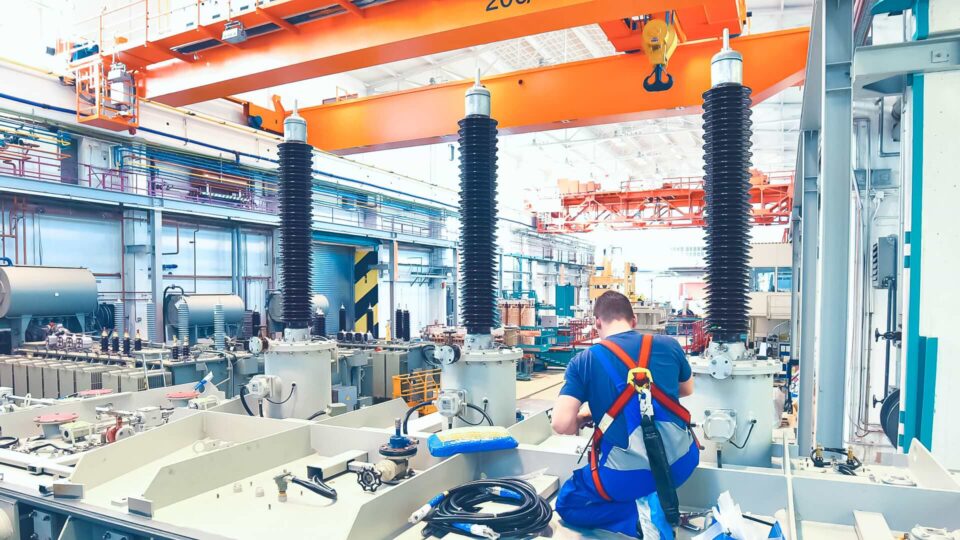In the manufacturing industry, maintaining a healthy and productive work environment is paramount. One of the most critical factors in achieving this is ensuring proper ventilation. Effective ventilation systems not only improve indoor air quality but also play a vital role in controlling temperature, humidity, and the overall comfort of workers. In this blog post, we’ll explore common ventilation issues in factories, practical solutions to enhance ventilation, and how Fanquip’s advanced ventilation products can address these challenges.
Common Ventilation Issues in Factories
Factories and manufacturing plants often face significant challenges related to ventilation. These challenges can adversely affect the work environment and the health and safety of workers. Common issues include:
- Inadequate Airflow: Insufficient airflow can lead to the accumulation of pollutants, including dust, fumes, and vapours, which can harm workers’ health and reduce productivity.
- Poor Air Quality: High levels of carbon dioxide and other pollutants can result from poor ventilation, leading to “sick building syndrome,” where workers experience headaches, fatigue, and respiratory issues.
- Temperature and Humidity Imbalances: Inadequate ventilation can cause uncomfortable humidity levels and temperature variations, making the work environment unpleasant and potentially hazardous.
- Mould and Mildew Growth: Poor ventilation can result in moisture accumulation, leading to mould and mildew growth, which can cause respiratory problems and allergic reactions among workers.
- Noise Pollution: Ventilation systems that are not designed or maintained properly can create excessive noise, contributing to a stressful and disruptive work environment.
How to Improve Ventilation in a Factory
Improving ventilation in manufacturing facilities is crucial for maintaining a healthy and productive work environment. Here are some strategies to consider:
Mechanical Ventilation in Manufacturing
Mechanical ventilation systems, including HVAC systems, are essential for providing adequate ventilation in large industrial spaces. These systems help control indoor air quality by removing pollutants and supplying fresh air.
Key Considerations for Mechanical Ventilation
- Airflow Control: Ensuring that airflow is adequate and well-distributed throughout the facility.
- Humidity Regulation: Maintaining optimal humidity levels to prevent mould and mildew growth.
- Temperature Management: Using ventilation to manage temperature, making the work environment more comfortable.
- Noise Reduction: Choosing low-noise ventilation solutions to minimise disruption and stress in the workplace.
- Maintenance: Regularly inspecting and maintaining ventilation systems to prevent breakdowns and ensure continuous operation.
Read our blog: Where is mechanical ventilation required?
Natural Ventilation
Incorporating natural ventilation by opening doors and windows can improve air circulation and reduce reliance on mechanical systems. However, this method might not be sufficient for larger or more polluted environments.
Fanquip’s Ventilation Solutions for Manufacturing
Fanquip offers a comprehensive range of ventilation solutions tailored for the manufacturing sector. Our products are designed to improve air quality, ensure adequate ventilation, and enhance the overall work environment.
Industrial Fans & Giant Fans
Fanquip’s ultra-low noise, high volume giant fans provide unrivalled air movement efficiency. These fans are particularly useful for workshops, production areas, and animal holding sheds. They feature:
- Five aluminium blades
- Guy wire support set
- Network capability for up to 20 fans
- Reverse mode for heat re-stratification
- Wall mount HMI controller with seven-speed settings
- Integration with ceiling fans for enhanced air circulation

Wall Fans
Fanquip provides a selection of industrial extraction wall fans designed to effectively remove high volumes of heat, odour, dust, and steam from warehouses, manufacturing plants, food processing facilities, and agricultural structures. These fans are incredibly versatile, low-noise, and are built to withstand all weather conditions. Types include:

Roof Fans
Fanquip offers completely weatherproof, easy-to-install roof exhaust or supply air fans to remove heat, steam, or dust in commercial and industrial applications. Types include:
- Curb Base Hooded Roof Fan
- Profile Base Hooded Roof Fan
- Vertical Discharge Roof Fan
- Filtered Roof Supply Fan

Purging Fans
Industrial purging fans extract dirt, contaminants, gases, and toxins to keep the air clean in indoor spaces. Suitable for confined spaces and demanding locations, these fans can remove large volumes of fumes or toxic air and supply large volumes of fresh air to workers. Types include:
- Compact Purging Fan
- Portable Blower Extractor
- Portable Purging Fans
- Vat Purging Fans

Filter Fans
The Fanquip industrial filter fans easily remove dust and other microscopic contaminants from your facility plus enjoy added cooling with less energy consumption. Our filter fans are available in a range of sizes, motor powers, and air volumes to suit the needs of your premises and ensure compliant and safe air quality. Types include:
- Filter Fan
- Negative Air Units

Get Expert Advice for Industrial Ventilation Solutions
Ensuring proper ventilation in manufacturing facilities is crucial for health and safety, productivity, and compliance with regulations. Fanquip provides expert advice and tailored solutions to meet the specific needs of your industrial environment. Contact us today to learn more about how we can help improve your ventilation system and create a healthier, more efficient work environment.
For more information on improving air quality, managing humidity levels, and ensuring adequate ventilation, visit our website or contact our team of experts. Let Fanquip be your partner in creating a safe and productive work environment.
